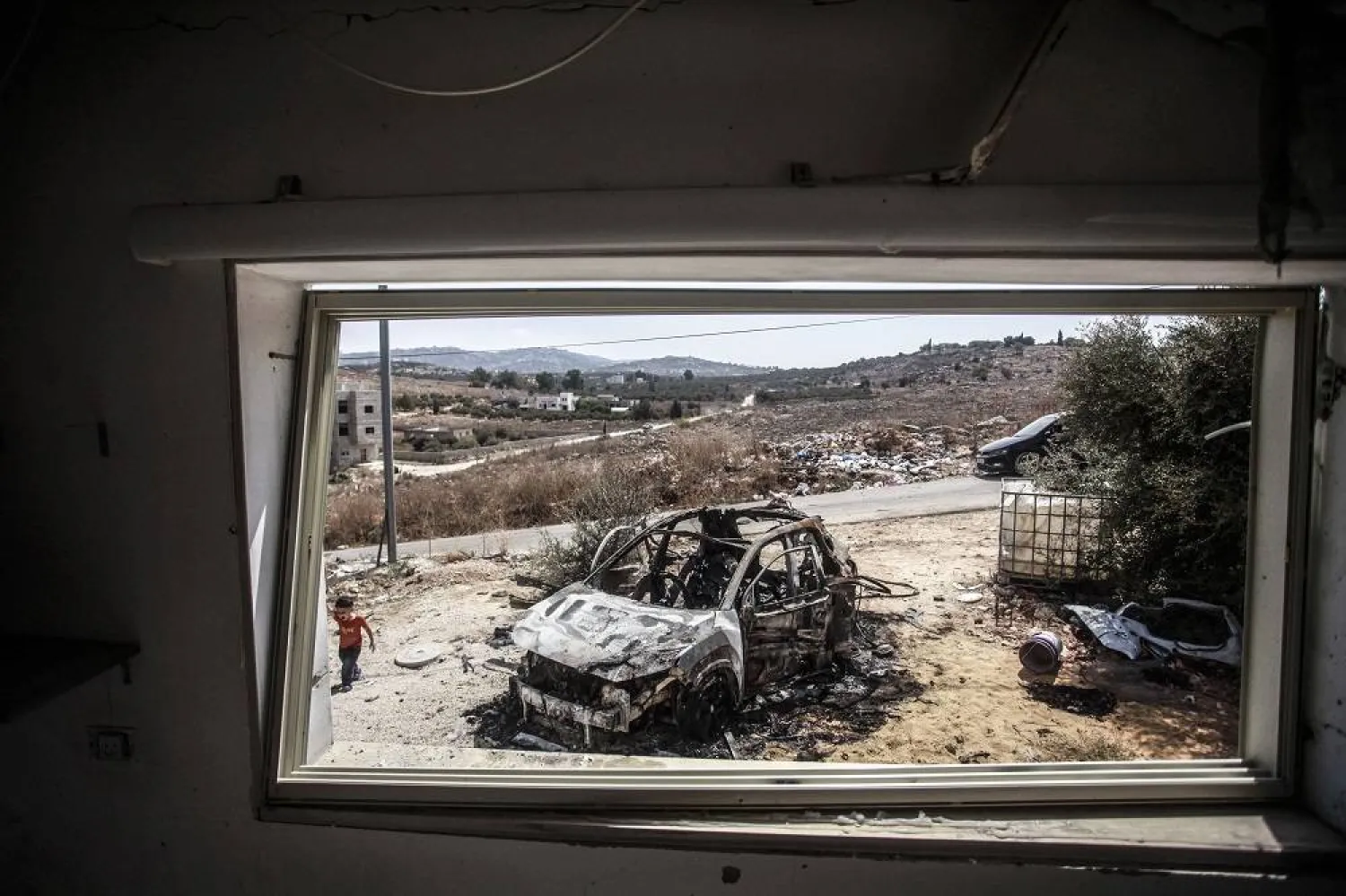Israeli settlers shot dead one Palestinian and wounded three others in the occupied West Bank's Bethlehem, while five others were killed in an Israeli strike on the Nur Shams refugee camp near the city of Tulkarm, the Palestinian health ministry said.
The Israeli military said its aircraft struck a militant operations center in the camp, and that troops were separately blocking routes and conducting searches in the West Bank following reports of an abduction.
It was looking into reports on the settler raid, it added.
Palestinians regularly accuse Israeli security forces of standing by and allowing groups of violent settlers to attack their houses and villages and the incidents have attracted increasing concern internationally.
The US and a number of European countries have imposed sanctions on violent settlers and called repeatedly on Israel to do more to curb the attacks.
In parallel to escalating settler attacks, clashes with the Israeli military in the West Bank have risen sharply since the start of the Israel-Hamas war in Gaza last year as Israeli forces have stepped up operations against armed groups, including Iranian-backed Hamas and Islamic Jihad.
Thousands of Palestinians have been arrested in military raids, and at least 637 have been killed, according to Palestinian Health Ministry figures. Many of them are armed fighters but others are stone-throwing youths or uninvolved civilians.
At least 30 Israelis - civilians and soldiers - have been killed by Palestinians in Jerusalem and the West Bank in the same period, official Israeli figures showed.









